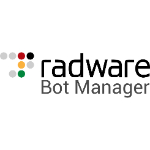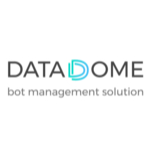TechnologyCounter provides genuine, unbiased real user reviews to help buyers make informed decisions. We may earn a referral fee when you purchase through our links, at no extra cost to you.
List of Best DDoS Protection Software
Showing 1 - 11 of 11 productsCloudflare is a leading web infrastructure and security company, revolutionizing how businesses of all sizes operate online. With its powerful suite of technologies, Cloudflare helps websites and applications run faster, smarter, and safer on the int...Read Cloudflare Reviews
Radware Bot Manager an innovative software designed to protect your website from malicious bot attacks. With advanced features and intelligent detection techniques, Bot Manager ensures the security and reliability of your online platform. Say goodbye...Read Radware Bot Manager Reviews
Kaspersky is a trusted name in the world of cybersecurity. With its advanced technology and years of experience, Kaspersky provides top-notch protection against all types of online threats. Count on Kaspersky to keep your digital life safe and secure...Read Kaspersky Reviews
AppTrana is a cybersecurity software that offers robust protection for websites, web applications, and APIs. With its advanced features and unparalleled functionality, AppTrana is dedicated to safeguarding your digital assets from online threats and...Read AppTrana Reviews
HaltDos offers a reliable and efficient solution for protecting your website and web services from DDoS attacks. Using advanced Cloud-based technology, it constantly monitors and identifies threats, and promptly mitigates attacks without the need fo...Read Haltdos Reviews
Sucuri is a security software known for its unparalleled protection against website attacks and malwares. With its advanced technology interface, Sucuri offers a seamless website security solution for businesses of all sizes. Trust Sucuri to safeguar...Read Sucuri Reviews
Akamai, the leading software solution that enhances internet and digital experiences for businesses and their customers. With a proven track record of delivering fast and secure content delivery, Akamai empowers organizations to thrive in todays digi...Read Akamai Reviews
DataDome is a solution for protecting your online business from malicious bots. With advanced bot detection and mitigation capabilities, DataDome helps keep your website and APIs safe from fraud, content scraping, and other malicious activities. Stay...Read DataDome Reviews
Voxility DDoS Protection is a security solution that safeguards your online platform against malicious DDoS attacks. With an advanced network infrastructure and robust mitigation techniques, Voxility ensures the uninterrupted availability and perform...Read Voxility DDoS Protection Reviews
Flowmon is a leading network monitoring and security solution designed to help businesses gain complete visibility and control over their network traffic. With advanced features design, Flowmon helps to detect and prevent potential threats, analyze n...Read Flowmon Reviews
ManageEngine Vulnerability Manager Plus is an end-to-end vulnerability and compliance management tool that instantly detects vulnerabilities, offers built-in remediation, and maintains compliance in real time...Read ManageEngine Vulnerability Manager Plus Reviews
ManageEngine Vulnerability Manager Plus is an end-to-end vulnerability and compliance management tool that instantly detects vulnerabilities, offers built-in remediation, and maintains compliance in real time...Read ManageEngine Vulnerability Manager Plus Reviews
Kaspersky is a trusted name in the world of cybersecurity. With its advanced technology and years of experience, Kaspersky provides top-notch protection against all types of online threats. Count on Kaspersky to keep your digital life safe and secure...Read Kaspersky Reviews
Sucuri is a security software known for its unparalleled protection against website attacks and malwares. With its advanced technology interface, Sucuri offers a seamless website security solution for businesses of all sizes. Trust Sucuri to safeguar...Read Sucuri Reviews
Voxility DDoS Protection is a security solution that safeguards your online platform against malicious DDoS attacks. With an advanced network infrastructure and robust mitigation techniques, Voxility ensures the uninterrupted availability and perform...Read Voxility DDoS Protection Reviews
- What Is DDoS Protection Software?
- Top Reasons Why Businesses Need DDoS Protection Software?
- What Are the Top Key Features of DDoS Protection Software?
- What Are the Top Benefits of DDoS Protection Software?
- What Are the Steps to Choose the Right DDoS Protection Software?
- What Are the Types of DDoS Protection Software for Different Industries?
- What Are the Technology Trends for Best DDoS Protection Software?
- What Are the Deployment Options for DDoS Protection Software?
What Is DDoS Protection Software?
A distributed denial-of-service (DDoS) attack occurs when a malicious actor uses numerous computers to overwhelm a single target with a huge number of concurrent requests. These attacks can be launched from a single infected computer or a huge network of compromised systems controlled by the malicious actor (known as a botnet).
DDoS prevention software attempt to overwhelm a website, rendering it inaccessible to legitimate users. DDoS protection software are technologies, procedures, and systems that prevent DDoS attacks on websites. Traffic monitoring, rate restriction algorithms, firewalls, traffic scrubbing, and behavioural analysis are common strategies used by these products.
Traffic monitoring determines the type of traffic and request size reaching the website's servers, allowing administrators to set limits on specific categories of requests or traffic. Rate limiting algorithms monitor the rate of requests from specific traffic sources and stop them if it becomes too high.
Firewalls examine incoming requests and filter out harmful traffic before it reaches the underlying infrastructure. Traffic scrubbing solutions scan and filter out harmful traffic before it reaches its destination. Behavioural analysis searches for indicators of harmful conduct.
DDoS protection software can aid in the prevention and mitigation of DDoS prevention software. Many businesses employ a combination of these solutions to safeguard their servers and websites.
Top Reasons Why Businesses Need DDoS Protection Software?
1. To safeguard their website from huge and overwhelming malicious traffic generated by a distributed denial of service (DDoS) assault.
2. To ensure that only authorised users can access their website and its resources.
3. To prevent financial losses caused by the inaccessibility of their website and resources.
4. To harden their website and its resources against future attacks.
5. To detect and reduce suspicious traffic from various IP addresses.
6. Use advanced screening technology and customised rules to prevent malicious assaults.
7. To prevent unauthorised access to sensitive data and network resources.
8. To prevent vulnerabilities, recognise unusual patterns and activities in the network.
9. Providing improved detection capabilities to lower the likelihood of a successful attack.
10. To minimise the amount of manual intervention needed to mitigate a DDoS assault.
11. Optimise network traffic patterns to increase website performance and dependability.
12. To ensure policy compliance by providing comprehensive data and user visibility.
13 Reduce the impact of DDoS assaults on business operations and resources.
14. To reduce the time and resources needed to restore service following an assault.
15. Enabling administrators to monitor and respond to potential problems in real time.
What Are the Top Key Features of DDoS Protection Software?
1. Real-time Monitoring & Detection: Continuous monitoring and quick detection of malicious, suspicious, or aberrant traffic are provided by DDOS protection software. They also give a reliable and economical method of detecting attacks before they cause major damage.
2. Rate Limiting & Throttling: Administrators can use DDoS mitigation software to set limits on incoming and outgoing traffic to limit the scope of potential DDOS assaults.
3. Filtering & Redirection: DDoS prevention software allows you to block incoming traffic from specific IP addresses while still allowing legal traffic through.
4. Protocol Compliance: Through the right configuration of protocols such as TCP and UDP, DDoS mitigation software advocate a protocol-aware approach to identifying and blocking malicious traffic.
5. Network Segmentation: The best DDOS software aid in the separation and control of network traffic, reducing the danger and impact of DDoS prevention software by generating smaller, more defendable attack surfaces.
6. Source IP Authentication: DDoS mitigation software support authentication of source IP addresses to confirm that incoming traffic is legitimate.
7. Blacklist Management: DDoS prevention software give a comprehensive list of malicious IP addresses that are discovered and prevented from posing a danger to a network.
8. Clean-up & Recovery: DDOS mitigation tools aid in the speed of clean-up and recovery operations following a DDOS assault.
What Are the Top Benefits of DDoS Protection Software?
1. Improved Network Security: DDoS protection software serve to improve network security by acting as a deterrent to hostile assaults, preventing systems from being penetrated and data from being stolen.
2. Reduced Downtime: DDoS prevention software help to reduce downtime caused by denial-of-service attacks by blocking malicious traffic.
3. Improved Visibility: The best DDoS protection software allows organisations to see harmful traffic patterns and better comprehend threats and their sources.
4. Enhanced Infrastructure Performance: The best DDOS software increase infrastructure performance by guaranteeing that key services are always available and by balancing genuine and malicious traffic.
5. Cost Savings: DDoS mitigation software help businesses save money by lowering the amount of time spent on manual threat identification and mitigation.
6. Increased Productivity: DDoS protection software help to increase employee productivity by improving performance and reducing downtime, allowing employees to focus more on their responsibilities.
7. Real-time Protection: The best DDoS protection software provide real-time protection, allowing organisations to respond to and reduce threats in real time.
What Are the Steps to Choose the Right DDoS Protection Software?
1. Determine your network needs: Before selecting the best DDoS protection software, it is critical to understand your network requirements and identify the types of assaults to which you may be exposed. This entails assessing the type of traffic that will pass through your network as well as the potential repercussions of an attack.
2. Gather Information: Learn about the many DDoS mitigation tools available, including their features and performance. It is also necessary to compare cost and the amount of protection provided by each.
3. Consult an Expert: Consult with a security specialist about your specific environment and possible DDoS attack scenarios. Inquire with the expert about the finest tool and solution suites.
4. Test the Tool: Test the tool or solution with real-world traffic before making a decision. This will aid in determining the tool's effectiveness in defending against DDoS attacks.
5. Choose the Right Tool: Choose the best DDOS software for your network after analysing all of the aspects.
What Are the Types of DDoS Protection Software for Different Industries?
The different types of DDoS protection software used for different industries include:
1. Firewalls: Firewalls are one of the most common and oldest techniques of defending against DDoS attacks. They enable administrators to create a set of rules that can be used to block suspicious IP addresses and traffic that meets certain criteria. To maximise protection, large networks may require numerous levels of firewalls.
2. Network Intrusion Detection Systems (NIDS): NIDS monitor all incoming and outgoing traffic in order to detect risks before they become a problem.
3. Network Anti-DDoS solutions: The best DDoS protection tools provide additional network security by detecting and blocking unwanted traffic such as botnets and DDoS attacks before it reaches the application layer.
4. Application Firewalls: These firewalls are built primarily to safeguard online applications and give administrators granular control over who may access each application and what traffic is authorised.
5. Load Balancing Solutions: Load balancers distribute network traffic among numerous servers, preventing a single server from getting overburdened with requests.
6. Rate Limiting Solutions: Rate restriction is a technique for limiting requests from the same IP address in order to prevent your server from becoming overloaded.
7. DDoS Protection Services: The best DDoS protection tools provide tailored solutions to protect servers and networks from the most recent DDoS attacks.
These services can be expensive, but are often necessary for large networks that require continuous protection.
What Are the Technology Trends for Best DDoS Protection Software?
The use of DDoS protection software is becoming increasingly important as networks become more susceptible to attack.
There are a number of technology trends currently emerging in the area of the best DDOS software.
1. Increased Automation: The automation of the best DDoS protection software enables network managers to conduct preventative and reaction steps to assaults with greater accuracy and speed.
2. Cloud-Based Solutions: Cloud infrastructure is assisting DDoS defence systems in scaling to ever huge attack sizes. By shifting resources and responsibility to cloud service providers, these cloud-based solutions enable organisations to decrease the costs and complexities of on-premise solutions.
3. Analytics: Analytics and machine learning are proven beneficial in detecting harmful activities and threats fast, enabling for more complete attack protection.
4. Application-Layer Protection: Application-level protection is becoming increasingly crucial as attacks get more complex. This can include services that use Web Application Firewalls (WAFs) or Protection-as-a-Service (PaaS) solutions like Cloudflare.
5. Deception Technologies: Deception methods are becoming more essential in the best DDoS protection tools defense because they assist lessen attack impact by redirecting attackers away from production networks.
Overall, these trends are improving the security industry's ability to avoid and respond to DDoS attacks, as well as assisting organisations in better protecting their networks.
What Are the Deployment Options for DDoS Protection Software?
The best DDOS software deployment choices vary depending on the specific needs of the network being protected.
The most common deployment options include hardware appliances, which can be installed in-line or through out-of-band filtering; cloud services, which can monitor traffic at the network edge or the application layer; and software-only solutions, which can be installed onto existing networks and used to detect and mitigate threats.
Managed services are also offered, in which a third-party professional provides 24/7 monitoring and response capabilities.











